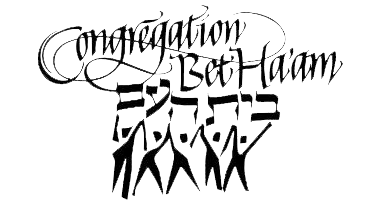Rabbi Jared H. Saks
I don’t keep kosher. Many of you already know this. Many, I imagine, do not. I’d like to tell you a little bit about why. First, some background. My maternal grandfather, after whom I am named, was a meat dealer. He wasn’t a butcher or a shochet (kosher butcher), but he supplied restaurants and hotels with meat for their menus. My paternal grandmother, whose father practiced Orthodox Judaism, did not keep kosher. Whenever I took her out for lunch at a nearby diner, she always ordered the same meal, a BLT on whole wheat bread. Throughout my childhood, my dietary practices flowed from both sides of my family and treif (non-kosher food) and meat with dairy were common staples in our home. As a teenager in high school, I became a vegetarian and then a vegan for a short time. I think, in retrospect, this was a bit of teenage rebellion on my part. By the time I went off to college, I had resumed eating poultry and seafood (both fish and shellfish), but continued not to eat red meat or pork. When I began rabbinical school and started my first year in Israel, I decided it was an opportunity for me to try kashrut (keeping kosher), as kosher meat is readily available in Israel and kosher restaurants are, of course, ubiquitous.
When I returned to New York to continue in my rabbinic studies, I read Eric Schlosser’s Fast Food Nation. I discovered that the ethical shortfalls of the conventional meat industry extended to the kosher meat industry as well, in spite of my impression that producers of kosher meat, as Hebrew National would say, answer to a higher standard. What was I to do? For years, I thought I was being thoughtful about my food choices, but I realized that there was a lot more that went into how my food got to my table than I’d previously considered. Ultimately, after a lot of soul searching and study, I decided that I could not in good conscience consume conventional or kosher meat. I decided only to eat meat that was sustainably sourced and ethically raised. Initially, I continued to separate meat and dairy and avoided other treif food. Ultimately, though, I came to believe that an organic, sustainably sourced cut of meat—poultry, beef, or pork—that was raised with respect for the animal, the workers, and the earth, was the holier choice. Some believe that kashrut stems from animal welfare. Others say it is about healthful food. Neither of these, in reality, are the reason for keeping kosher.
In Jewish tradition, we see that God creates holiness through separation and distinction. The final blessing of Havdalah, the service at the close of Shabbat, praises God for separating light from darkness, Shabbat from the rest of the week, and the Jewish people from the other nations. As a side note, this last distinction is not one of privilege, but rather of responsibility. God expects us to be God’s partners in the world. Throughout Torah, we encounter commandments that instruct us to create separation and distinction in our lives. Kashrut is one of them. Others include not sowing two different kinds of seeds in the same field, not harnessing an ox and a donkey together to plow a field, and not mixing fibers. Some of these still bear relevance for us today. Others, like shatnez, the separation of wool and linen, do not resonate with us. For me, kashrut is somewhere in between. While I do not keep kosher in a traditional sense, I do create separations and distinctions in what I choose to eat, being mindful of how my food gets to my plate. In doing so, I create holiness in my life. As Reform Jews, our tradition gives us the autonomy to determine which commandments give meaning to our lives. While some may no longer resonate with us in their original form, we have the ability to re-envision them in meaningful ways. Consider how you can create holiness in your life through distinction. Separate yourself from experiences that do not cultivate holiness. Create separations that make your life holier.
Image: Pixabay

